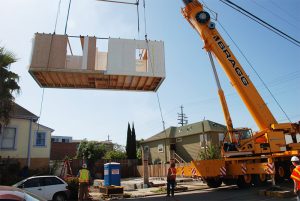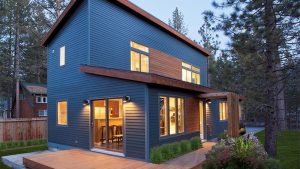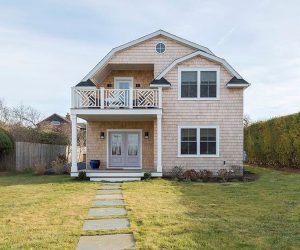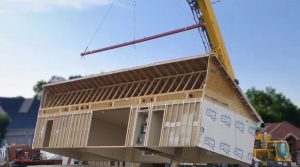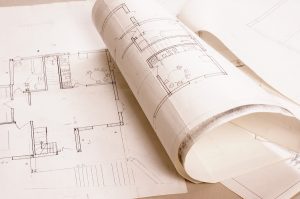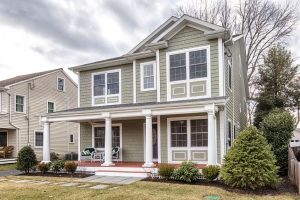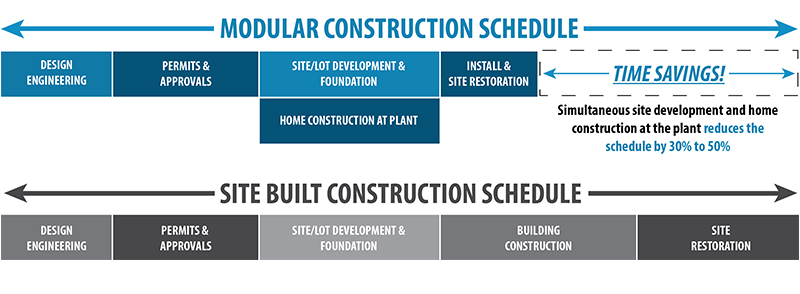
Building Modular has many benefits. Whether it be for Home Owners or Builders/Suppliers, there are many different reasons to consider going modular.
Variety
Modular homes look like any other homes. Today's technology has allowed modular manufacturers to build almost any style of house, from a simple ranch to a highly customized contemporary. No matter what you are looking for, you will find it among modular homes, often for a lower price than in the case of site-built houses.
Custom Design
The building process begins in the design phase. Our modular producers use state-of-the-art computer-assisted design stations that aid them in customizing floor plans and producing drawings and material requirement lists. You may build any house you want, one that is truly tailored to your style and needs.
Attention to Codes & Standards
Modular homes are built to the same codes and standards as conventional stick built homes. A quality control process provides complete assurance that a home has been inspected for code compliance and workmanship. In-plant inspectors as well as independent agencies inspect the home on behalf of our state and local governments. Since the controls are conducted through various stages of the construction, modular houses often adhere to the regulations even better than the standard, site-constructed ones.
Expedited Process
Efficiency begins with modern factory assembly line techniques. A modular home travels to workstations where all the building trades are represented. Work is never delayed by weather, subcontractor no-shows or missing materials. Your house is ready exactly when you expect it, so you can plan your near future without any worries.
Energy Efficiency & Sustainability
Quality engineering and modular construction techniques significantly increase the energy-efficiency of a modular home when compared to a site-built one. Plus, the building process for modular homes generates significantly less construction waste, which is also of great help to our planet.
Conventional Financing
When placed onto the foundation, modular homes gain the same status as the site-built ones. This means that you can use conventional means to fund them, enjoying a higher quality for a smaller price.
Long-term Value
While they might be less expensive to place, building modular homes pays off in a similar growth in value over time as for traditional site-constructed houses. This means that your house will pay off more quickly and is a perfect investment for those who wish to rent the estate as soon as it’s built.
Reduced Overhead Cost
Since most of the construction is done by the manufacturer in the factory, the builder is able to concentrate on sales and marketing. Manufacturers offer a wide range of sales and marketing support to the builder. This means that your overall costs drop, while you may benefit from a higher ROI.
Better Job and Cost Control
With 80 to 90 percent of the work completed in a factory, fewer laborers and subcontractors are needed. You also spend less on materials, since fewer of them are wasted in the process.
Sales and Marketing Support
Today's homebuyer wants a custom designed home that fits their individual lifestyle. The manufacturer has professional staff who can design the home to your customer's needs. You may offer customized homes to your customers and tailor the modules on the go, attracting more customers, increasing your prices, and driving customer satisfaction.
Custom Design
Modular homes are built to the same code required for site built homes. Each manufacturer has quality control personnel in the factory monitoring production as well as a separate third party inspector who ensures the quality and compliance of the home. Each manufacturer also employs service people who can help if a problem arises in the field.
Quality and Service
The bulk of the construction is completed in the factory under a controlled environment, so there are no delays due to weather or material shortages. The manufacturer will guarantee the cost of the home after the order is placed, for a reasonable period of time, so that unexpected cost overruns do not occur. No delays lead to higher customer satisfaction, which results in better reviews and a rapid growth of your customer base.
Increased Profit Potential
Reduced construction time, reduced labor and overhead costs and the ability for you to concentrate on sales and customer service all translate into increased profitability for the builder and greater satisfaction for the homebuyer.
Learn More About the Benefits of Modular Homes
What Will My Modular Home Cost?
How much does it cost to build a modular home with everything included?
Budget Basics for Modular Home Buyers – How Much Home Can I Afford?
Where do you start when drafting a budget for a modular home project? Start with these tips!
Tips to Find the Right Modular Builder for You
Who is the best modular home builder for your project? What questions should you ask before hiring a modular home builder?
Zero Net Energy Modular Homes in 2020: The Right Time for Requirements?
What will these new requirements mean to the affordability of new homes in 2020? And what impact will they have on the modular construction industry?
Three Ways Modular Construction Can Address the Affordable Housing Shortage
Many states are facing affordable housing shortages. Here are three ways that modular construction can help!
Modular Means More: Nice Slogan, But What Does it Mean?
“Modular Means More” is much more than just a slogan. It’s an important reality in today’s construction industry. What exactly do we mean when we say that “Modular Means More”?
How Does Modular Construction Reduce Material Waste?
Modular construction lends itself to better recycling practices. Modular homebuilders can develop best practices for recycling and reusing materials, cutting down on waste.
New Building Code Adoptions: Improved Building Safety or Backdoor Unfunded Mandates?
Communication is key when new building codes are adopted. This keeps code adoption consistent across numerous jurisdictions.
7 Myths About Modular Homes
If you are considering building a home, modular homes are a reasonable choice. However, there are a number of myths and misconceptions that can make you less inclined to buy one.
Here are some of the most common myths about modular homes:
- « Previous
- 1
- 2
- 3
- 4
- Next »



